Israel terrified of Lebanese resistance despite bids to cut off border village
By Hiba Morad
In recent weeks, Israeli occupation forces have, in an act seen as deeply provocative, cut off Lebanon’s strategic border village of Ghajar by erecting a fence, fueling fresh tensions in southern Lebanon.
The Lebanese government has warned that the occupying troops must withdraw immediately and the Lebanese resistance movement Hezbollah has strongly condemned the aggression.
On Sunday, Lebanese lawmakers staged a demonstration to slam the Israeli occupation of the strategic village, terming it an “assault on Lebanese sovereignty” and a blatant breach of international laws.
During their visit to the border, accompanied by a group of activists and journalists, the lawmakers said the new Israeli aggression against Lebanon is “unacceptable and cannot be overlooked.”
They called the annexation “a persistent assault on Lebanese sovereignty and a flagrant violation of all international covenants and resolutions, which cannot be tolerated or ignored.”
About Ghajar
The Ghajar village lies in a strategic corner where the boundaries between Syria, Lebanon and occupied Palestinian territories meet.
It is divided by the UN Blue Line, the de-facto border between Lebanon and the Israeli-occupied Golan Heights, which was occupied by the Israeli regime in the 2006 war.
On the intervening night of September 30 and October 1, 2006, Israeli forces withdrew from the Lebanese border region where they had been stationed along the Blue Line with the exception of the northern part of the town of Ghajar, home to around 2,000 people.
Prior to their withdrawal from Lebanese territory behind the de-facto border, they had dug a trench at the al-Abbad outpost inside Lebanese territory, approximately 20 meters long and 1.5 meters wide.
Behind the trench, they installed a barbed wire strip approximately 50 meters long and 5 meters wide.
In November 2010, the Israeli cabinet approved a plan to withdraw from the northern part of the Lebanese village. Until this day, however, the status quo remains intact.
Recently, Lebanese officials said the Israeli occupation army has built a wall around the Lebanese part of Ghajar, warning that the occupying regime might annex it to the occupied part of the village.
In a statement last week, Hezbollah called works around the Lebanese part of Ghajar “dangerous,” and added that the wall is separating the area “from its natural and historic surroundings in Lebanon.”
Hezbollah leader Sayyed Hassan Nasrallah is expected to deliver a speech on Wednesday, which coincides with the 17th anniversary of the 2006 33-day Israeli war on Lebanon.
Deterrence in the face of Israel
Following a whirlwind tour across the Ghajar village this week, Lebanese journalist and activist Faisal al-Ashmar said the land legitimately belongs to Lebanon and the Israeli army should withdraw, adding that the Lebanese people will not remain silent in the face of such violations.
Speaking to the Press TV website, al-Ashmar said he and his friends were able to reach the last inch of the Lebanese land at the border in the complete absence of Israeli soldiers, armored vehicles or patrols, explaining that the absence of Israeli troops points to inherent fear, as they hide in safe zones.
“Israeli regime commits violations and assaults from time to time, but it does not dare stand in our face,” the Lebanese journalist and activist said.
“This is because of the power of deterrence created by Hezbollah that has been growing since the 2000 liberation of South Lebanon and the 2006 July war which crippled Israel and rendered it weaker.”
In the Sheba’a Farms and South Lebanon, farmers and people who own land right next to the borders with occupied Palestine were seen carrying out their mundane work without any fear or anxiety, Al-Ashmar told the Press TV website.
“This fearlessness makes me as a Lebanese swell with pride, thanks to the Lebanese resistance, not a single Israeli trooper dares to speak to the Lebanese people in that sensitive zone,” he added.
However, he regretted that the military posts of the Lebanese army are not well-equipped to confront the Israeli army, a fact that is clear to all who visit the area at the borderline.
This is what the Lebanese resistance movement has been trying to emphasize for more than two decades, the fact that in the absence of a strong Lebanese national army, the country must have resistance forces to confront any Israeli aggression.
On the same tour on Sunday, Lebanese legislator Elias Jaradi told media outlets that the Israeli army’s "theft of Lebanese lands and blocking of main roads amounts to a clear assault on the Arab nation’s sovereignty."
Jaradi stressed that the local residents of southern Lebanon, who managed to throw out the Israeli occupation forces troops in 2000, will not sit idle until all occupied lands are liberated.
Illusionary Blue Line and fearful Israelis
Speaking to the Press TV website, prominent Lebanese Journalist Ali Shoeib explained that the Blue Line is a “line of withdrawal and not a borderline”, and added that the line is “not an international line but an illusionary line” that should be ignored.
“There should be no borders between the Lebanese lands, it is rather a line that demarcates the Lebanese lands occupied by Israel. The Lebanese people and the owners of these lands should be allowed to enter to harvest their olives and crops, and use their lands,” he remarked.
The Al-Manar TV correspondent in South Lebanon noted that a popular movement has started recently with the Lebanese people “beginning to challenge the Israeli army and entering the lands they own, and in extension, rejecting all forms and shapes of occupation.”
In his opinion, what stops the Israeli occupation army from attacking the Lebanese people is the “power of deterrence” Lebanon enjoys owing to the victories achieved by the popular resistance.
Shoeib hastened to add that Israelis can only fire tear gas canisters in an attempt to prevent the popular movement from advancing into the occupied territories, which is originally their land and property.
“Whatever Israelis do, they will not prevent us from carrying out our duty as Lebanese people who seek to liberate their lands,” he told the Press TV website
Epstein provided New York apartment for ex-Israeli PM Barak: Report
BDS National Committee slams Human Rights Watch for anti-Palestinian bias
Norwegian ambassador resigns over expanding Epstein-linked scandal
Russia will not launch attack on Europe unless struck first: Lavrov
Israeli forces kill three Palestinians, including teen, in raids across Gaza
Israel finalizes execution plans for Palestinian abductees after Knesset vote: Report
VIDEO | Press TV's news headlines
VIDEO | Pakistan mosque attack in Islamabad sparks protests in Kashmir, Kargil


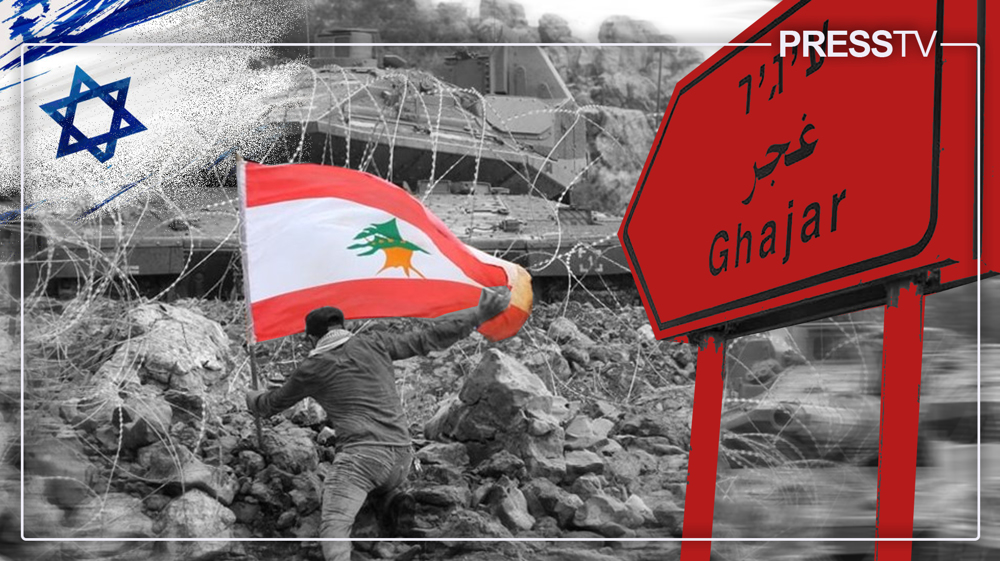


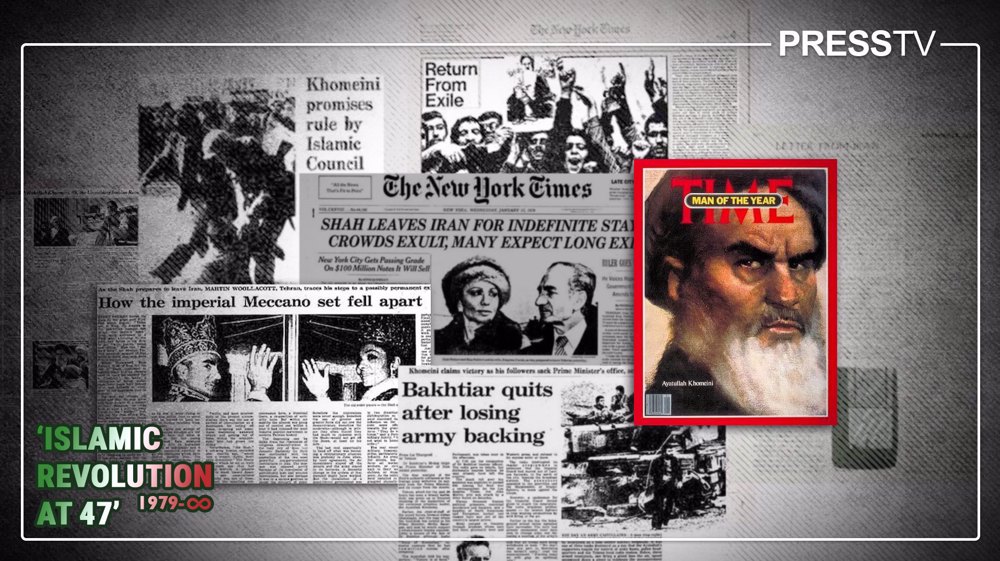




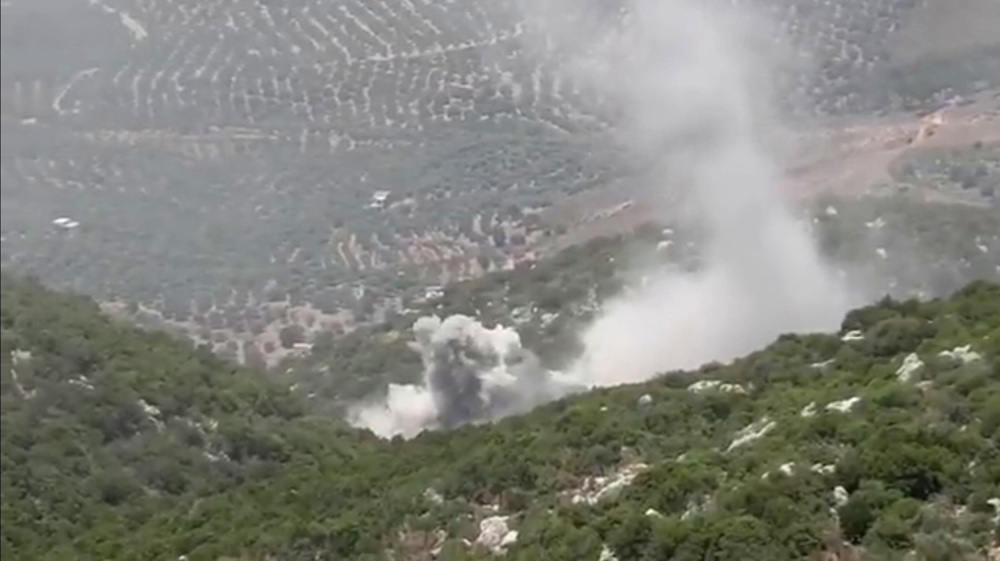
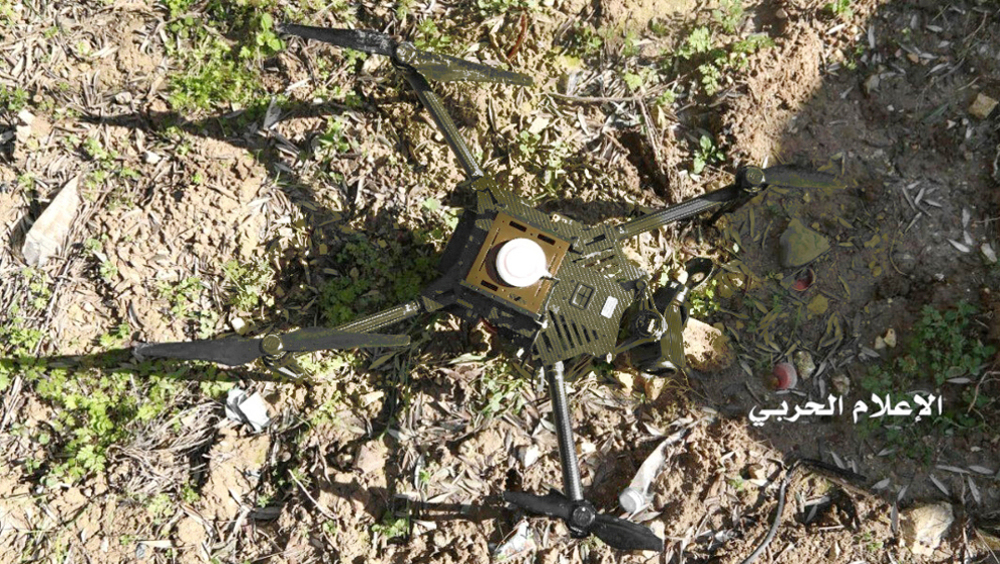
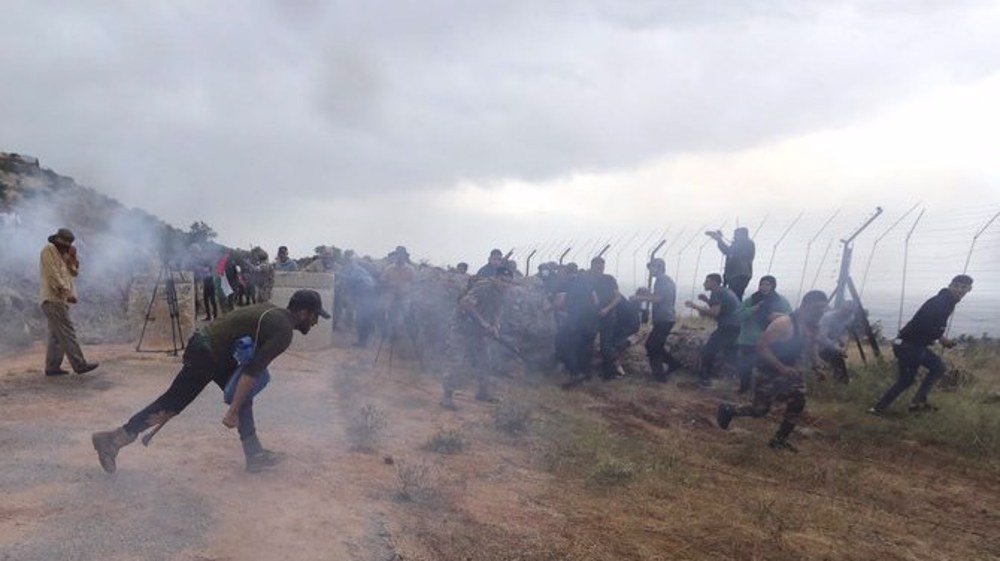
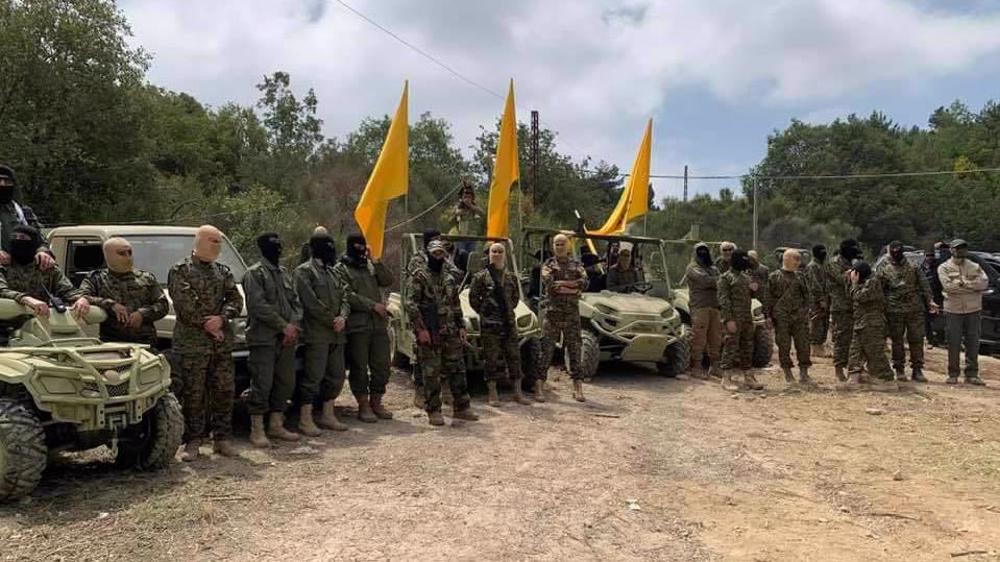

 This makes it easy to access the Press TV website
This makes it easy to access the Press TV website